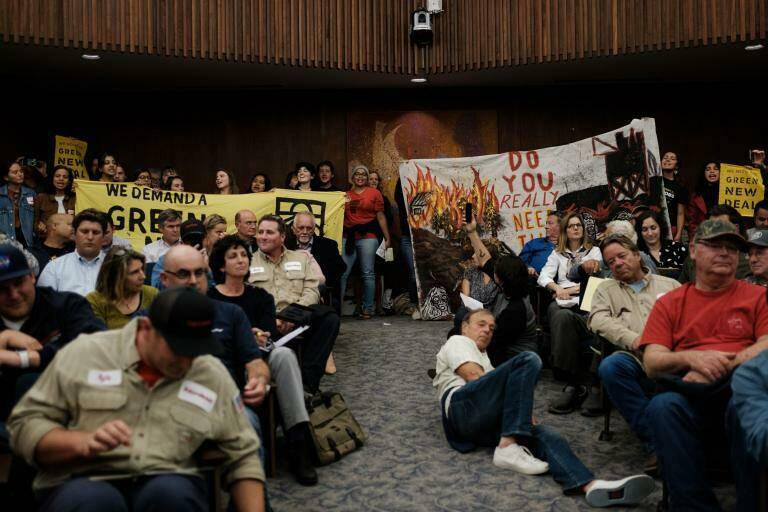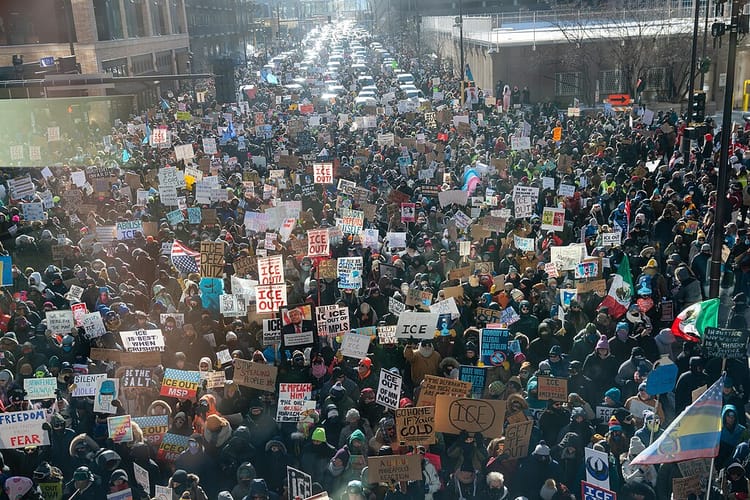In a Numbers Game, Justice Wins

A couple years ago, we worked with reporter Rebecca Nagle on the second season of her excellent podcast, This Land. Several months prior, Rebecca had called to chat about the reporting behind the story; she'd been following the steady drumbeat of constitutional challenges to the Indian Child Welfare Act over the past several years and recently a new corporate firm had appeared on the scene to take these cases pro bono. They didn't have a family law practice, they'd never involved themselves much with Indian Law and Rebecca had never heard of them.
"What's the firm?" I asked.
"Gibson, Dunn & Crutcher," she said. "Do you know them?"
Subscribers to this newsletter, listeners to the Drilled podcast, or anyone who's read my work in recent years probably recognizes that name. Gibson Dunn is Chevron's law firm. They represented the oil giant against the Ecuadorian tribes and farmers who sought compensation for oil spills in the Amazon. They also represent the company in more than two dozen climate liability and fraud cases making their way through U.S. courts at the moment. And they don't just represent Chevron. Gibson Dunn is a favorite of the fossil fuel industry in general; it has represented the American Petroleum Institute, Energy Transfer, Enbridge, ConocoPhillips, Occidental, and many more. And it's even better known for its work expanding free speech protections for corporations. We did a miniseries last year on the fossil fuel industry's efforts to expand corporate free speech at the same time that it is criminalizing protest. Today the firm is playing both sides of the free speech coin in the most literal of ways, arguing on behalf of Chevron that anything oil companies have ever said about climate change was "petitioning speech"—that's legalese for political speech—and should thus be given the highest level of First Amendment protection—and on behalf of Energy Transfer, the company behind the Dakota Access Pipeline, that protests of that pipeline amounted to an “unlawful, malicious, and coordinated attack” that was “designed to inflict damage, cause delay, defame Energy Transfer and Dakota Access, and disrupt Energy Transfer as much as possible.”
So of course my response to Rebecca's question was "Oh shit. Yeah I know them; it's very interesting that they've shown up here." As we worked together over the next two years to piece together how the Bradley Foundation, a conservative foundation that's spent even more than the Koch universe to roll back regulations and civil rights across the U.S., had backed this attack on an obscure piece of family law that had been passed unanimously and scarcely challenged in decades, for about the 100th time I thought about how silly it is that so many folks in the climate movement are hell-bent on separating climate change from both the world that created it and the world it is impacting. While a large and vocal segment of the climate movement works very hard to separate climate from things like workers' rights or civil rights, the organizations and corporations that bear the lion's share of responsibility for the problem and all of the responsibility for thwarting action combine their obstruction of climate policy with their obstruction of every other kind of public good. The very same organizations fund and support the anti-union agenda, the general suppression of democracy, the anti-trans agenda, the war on women's rights, and the obstruction of climate action. They see these things as interconnected, because they are. In a weird way, dark money-funded rightwing orgs are a helluva lot more woke than most liberal foundations.
For the first year or so that we were reporting the ICWA season of This Land, Rebecca was convinced that the Bradley Foundation must be an anti-Indigenous organization. Which made perfect sense, of course; it certainly would have jived with their behavior. The reality was worse. They hated tribal sovereignty only insofar as it blocked unfettered corporate access to resources, corporate rights to behave with impunity. The idea for these cases against the Indian Child Welfare Act had come in response to a request for proposals to shore up state's rights and consolidate conservative power at the state level. The corporate firms that helped out—firms like Gibson Dunn—didn't set out to destroy tribes, they just wanted to help their gambling and energy clients get around pesky tribal blockers to making more money. The Native kids who were collateral damage were only useful as poster children, never mind that their futures hung in the balance. [It's a very complicated issue and I really recommend listening to that podcast for the whole story, but in very broad strokes: The Indian Child Welfare Act, passed in 1978, sets forth placement preferences for Native kids who are removed from their parents' care. The law was passed in response to staggering stats around the rate at which Native kids were being removed from their families and then placed with White Christian families who obliterated any ties they had to their tribe. The argument from conservative groups is that the law violates the constitutional rights of adoptive parents who don't fit the preferred criteria...it's a reverse racism argument being made on behalf of the white adoptive parents. What we uncovered is that it's a Trojan horse; the real target is the foundation of tribal sovereignty itself, which is secured by the fact that Indian is a political, not racial, designation. If the Supreme Court were to agree that ICWA is applying racial preference, and thus violating the 14th amendment, then people could go after every other part of Indian law as "preferential" as well, from the Indian Health Service to tribal gaming to the many mineral and fossil resources sited on tribal land]
When I mentioned it to most climate folks, they brushed it off as not relevant to climate. Some wondered why I was spending so much time on a whole separate issue. I would have considered it time well spent even if it were wholly separate—we were able to show that the argument being made at the Supreme Court didn't accurately represent the underlying custody proceedings, among other key details that contributed to the court handing ICWA opponents a definitive loss last year. But to me, these are not separate issues at all. Indigenous people have been better stewards of the land for centuries; they have also galvanized the modern climate movement. And if that's not enough, the very same law firm fighting for the right to take their children is fighting for oil companies' rights to lie about climate change; it doesn't get much more connected.
I've been thinking about this even more than usual lately as I see so many climate organizations stay silent about the thousands of children being murdered in Gaza, avoiding it as "not our issue." There's so much fear that speaking out on anything other than renewable energy or pollution will confirm the criticism that climate advocates are really just agitating for a political agenda. The reality is that beyond all of the many moral reasons to stand up for what's right, if the climate movement fought the way its opponents do, with everyone on deck, all issues joined together, it might actually win.
This Week's Climate Must-Reads
- Exxon CEO blames public for failure to fix climate change (by Saul Elbein for The Hill) – Most folks didn't read past the headline of this piece, which...fair, it's a belter. But it's worth digging into what Exxon CEO Darren Woods actually said, which underscores the extent to which Exxon is still hanging its entire emissions hat on carbon capture despite the IEA calling that move a "dangerous delusion" last year.
- JPMorgan's Exit From Climate Group Sparks 'Greenhushing' Debate (by Alastair Marsh for Bloomberg) - The SEC is finally poised to release its long-awaited and much-delayed final guidance on climate risk disclosure, so we're seeing one last anti-ESG push from the oil bois. Worried over being painted with the same "woke capital" brush as BlackRock, JP Morgan left a climate action group last week, prompting a conversation about "greenhushing" that could result either from climate activism or from backlash like what we're seeing with the ESG situation. Equally, I think the argument could be made that letting JP Morgan into your climate club is just helping them greenwash.
- Buffett sounds wildfire alarm as utilities enter new era (by Eric Platt and Myles McCormick for the FT) - Truly an "are you fucking kidding me?" read, in which we hear all about how poor Warren Buffett has had to absorb the costs of all those wildfires while not hearing at all about the fact that the man still owns 28.2% of Occidental and in the same letter in which he was winging about wildfires, Buffett said he would probably own Occidental stock "indefinitely" and would continue aggressively buying more of it. Apparently the "oracle of Omaha" can't see what's right in front of his face.
- Millions of monarch butterflies have gone missing, and there is one thing humans can do to help (by Mia Taylor for the BBC) - I don't generally go in for solutions journalism like this, but here Taylor presents an honest-to-god solution—and a pretty simple one at that—that could genuinely help the monarch butterfly population. I'm from California, and I'm a human, what can I say I have a soft spot for those creatures. Let's get out there and plant some milkweed!
- Where's climate change on film and TV? There's now a Bechdel test for that. (by Sammy Roth for The Los Angeles Times) - Every time I'm watching a movie or TV show that's supposedly set in the present and yet doesn't even subtly nod at the climate crisis, it feels like a glaring error. Now there's a simple test for whether a TV series or film is accurately depicting the world we live in. Developed by Good Energy (full disclosure: I'm on their Advisory Council), the Climate Reality Check asks two simple questions: is climate change happening? and does at least one character know it's happening?





